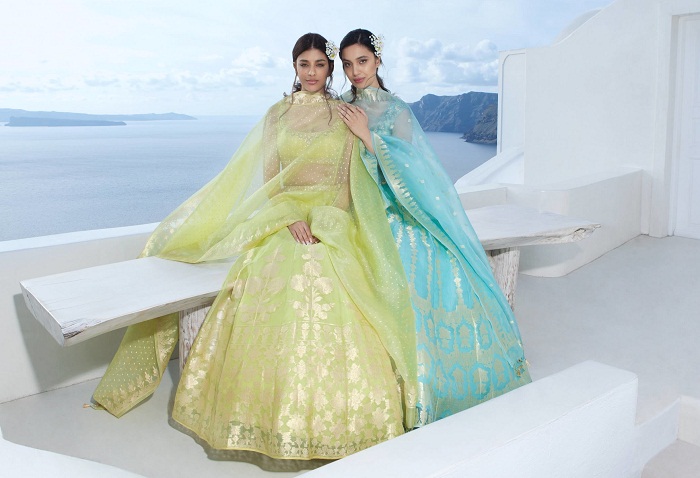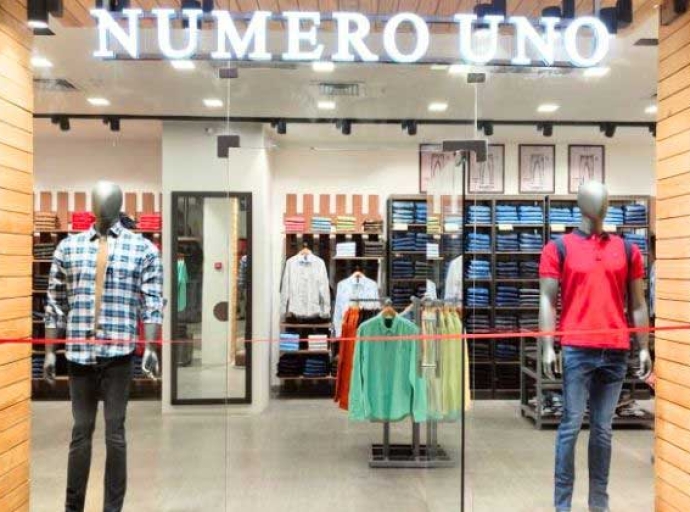Designer Anita Dongre believes, COVID-19 has made Indian brands realize the importance of sustainable fashion production. Her company, House of Anita Dongre, sources ethically produced materials besides adopting innovative and environmentally sensitive production processes. Its 11,000-sq. mt. headquarters near Mumbai conforms to the guidelines of the Sustainable Apparel Coalition and uses natural lighting, water conservation and biodegradable packaging.
A FashionScope report from McKinsey & Company highlights, sustainability is gaining ground in India as veteran Indian designers like Rohit Bal, Ritu Kumar and Rajesh Pratap Singh are reviving forgotten local weaves besides empowering artisan communities and using earth-friendly fabrics. Delhi-based designer Gautam Gupta has introduced natural handspun fabrics crafted from banana, bamboo, coffee beans and natural silks while designer Aneeth Arora launched two new labels: Pero Recycle and Pero Upcycle, to focus on environmental conservation.
Renewed interest in eco-friendly technologies and materials
Some of the biggest Indian fashion houses are factoring in ecology as a major growth driver. There is a renewed interest amongst them for new, more eco-friendly technologies, materials and production methods such as hemp from the Bombay Hemp Co. For instance, the Aditya Birla Group’s brand Liva has launched a clothing line made from biodegradable fiber derived from wood pulp.
Similarly, leading textile manufacturer and fashion retailer, Raymond Group has launched an eco-friendly range of fabrics called Ecovera in collaboration with Reliance Industries. These fabrics are made from recycled plastic bottles using biofuels and energy efficient processes.
Likewise, the flagship company of Aditya Birla Group, Grasim Industries has launched Liva-branded Viscose Staple Fiber. This man-made, biodegradable fiber is seen as replacement for cotton in apparels, home textiles, dress materials and knit wears. Nelson Jaffery, Head-Design, Liva says, there is enhanced mindfulness amongst consumers towards eco-friendly fabrics as they seek sustainable brands and slow durable fashion.
Launched in 2018, Aslee uses bamboo, hemp and native nettle fabrics to craft hemp and bamboo T-shirts as well antibacterial socks made from 70 per cent bamboo. The company launched biodegradable bamboo face masks during the pandemic as an alternative to the single-use disposable masks.
Rise in sustainability events
Sustainability is also being embraced by event organizers like the Lakme Fashion Week, which has been promoting Indian handlooms and textiles since 2012. Fashion Design Council of India launched the concept of ‘phygital’ fashion events. Fusing the elements of physical and digital, these events help FDCI curtail expenses and tread lighter on earth. Sunil Sethi, Chairman opines, COVID-19 has catalyzed increased sensitivity towards the environment, and given fashion leaders time to rebuild a sustainable future.
Analysts expect the online market for secondhand clothes, shoes and accessories to grow post pandemic. As Tanisha Saxena, who owns a sustainable brand store, advises, millennials should buy fewer but value-driven classics that endure through time and trends. They should also make their fashion consumption more responsive towards society as well as the environment, Dongre sums up.
Latest Publications


































